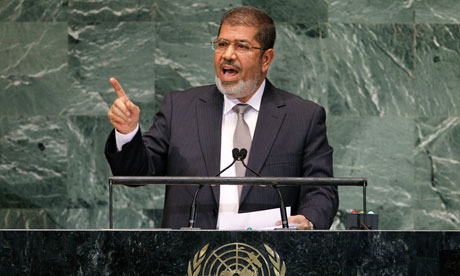James Dahl wrote:The problem with Islamic states is the financing only really allows revenues to be significantly collected from non-Muslims, but all those non-Muslims need to do in order to avoid paying those taxes is to become Muslims, which is openly encouraged by Islamic law. For a time the Caliphate managed to avoid this problem by always acquiring new non-Muslim populations to tax via military conquest, but eventually it grew so large and unstable that by 750 the Islamic Empire was ungovernable. The Banu Abbas revolution against the Banu Ummaya shattered the unity of the Islamic Empire, which never recovered that unity to this day. From 750 onwards there was never again a single Islamic empire.
This is a common mistake made by westerners that the major source of revenue was jizya, infact it was kharaj.
Kharaj was the tax on agricultural produce. and was independent from jizya or zakat.
The financial problems of the ummayad was due to excessive millitary spending and mass conversion to islam leading to many newly muslim farmers not paying kharaj.
This was resolved when in the end everyone who either owned or leased agricultural land had to pay kharaj regardless of religion.
and Jizya was not any greater than the 2.5% minnimum a muslim had to pay in zakat.
The ratio fluctuated due to economic conditions and there were times when the jizya rate was lower or equal to the zakat rate.
The main aim of jizya was to put contraints on the economic power of non muslims and keep them subservient to the Muslim dawla.
Since non muslims were not subject to conscription they could stay and keep making money and get an unfair advantage. Economic power leads to political power threatening the security of the muslim dawla.
Since the non muslim population of most of the middleeast was still the overwhelming majority well into the start of the crusades i.e 1000 AD and 300 years after the futux you can see how dangerous it was.
The best example of what happens when jizya was lifted was the Ottomans during Tanzimat.
Within a generation from a position of near equality with muslim traders and businesses the christians achieved near total control over the economy of the state.
The iqta is not entirely fuedal and not entirely unislamic there was disagreement over its use amongst the madhabs. Nevertheless it was never as extensive as European Fuedalism and did not even cover the majority of the farmland with most of the farmland still held by yeoman farmers.
Iqta did not extend to the urban environment which was the domain of the Imarat or Waqf.
James Dahl wrote:Mu'tazili is what we would now call "modernist" Islam, focusing on human free will, logic and facts over faith and submission to Allah. It is no surprise that Islamic science achieved its golden age in the Mu'tazili era, with huge strides made in mathematics, chemistry and physics made in this era. Mu'tazili ideology caused huge instability though and eventually the ideology would be discarded and Hanbali fiqh would become the state supported fiqh. The damage was done though, again the unity between the ruler and the law was shattered.
Muctazili caqeeda was not the driving force between the sciences because not all scholars even in the bay al xikma were muctazili in the begining. Allot of them were even christian, zoroazstrian and at least one buddhist i can think of.
Muctazili being too speculative lead to opposition and the fact that it was state sanctioned and forced on the people increased oppposition. there was even a spanish style inquisition the mixna that imprisoned and tortured dozens of opponents.
The heights of Science and Technology peaked in the 1000's long afterr the relegation from power and influence for the muctazila sect and the vast majority of scientists where ashacari and maturidi just like the majority of the people.








